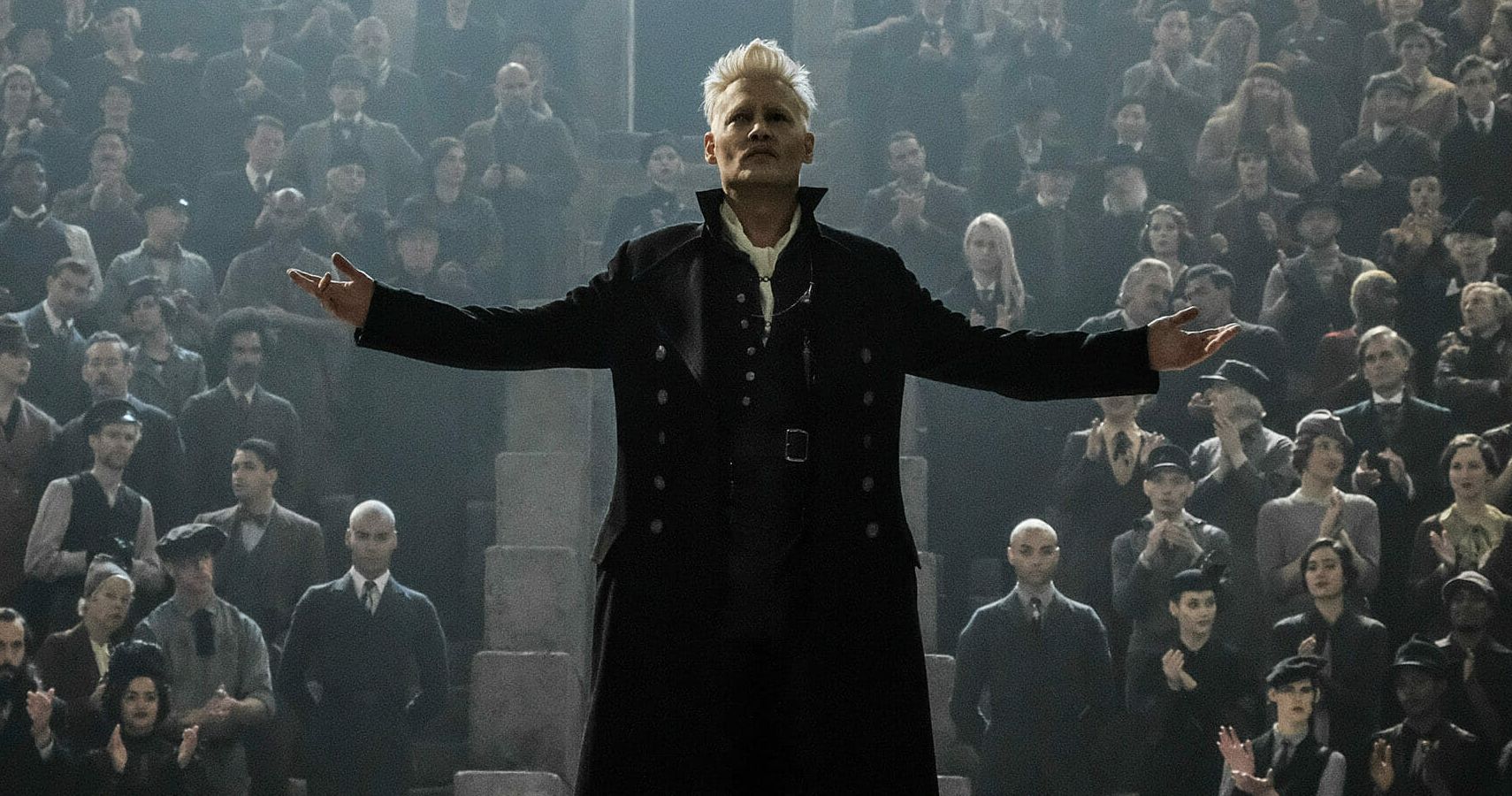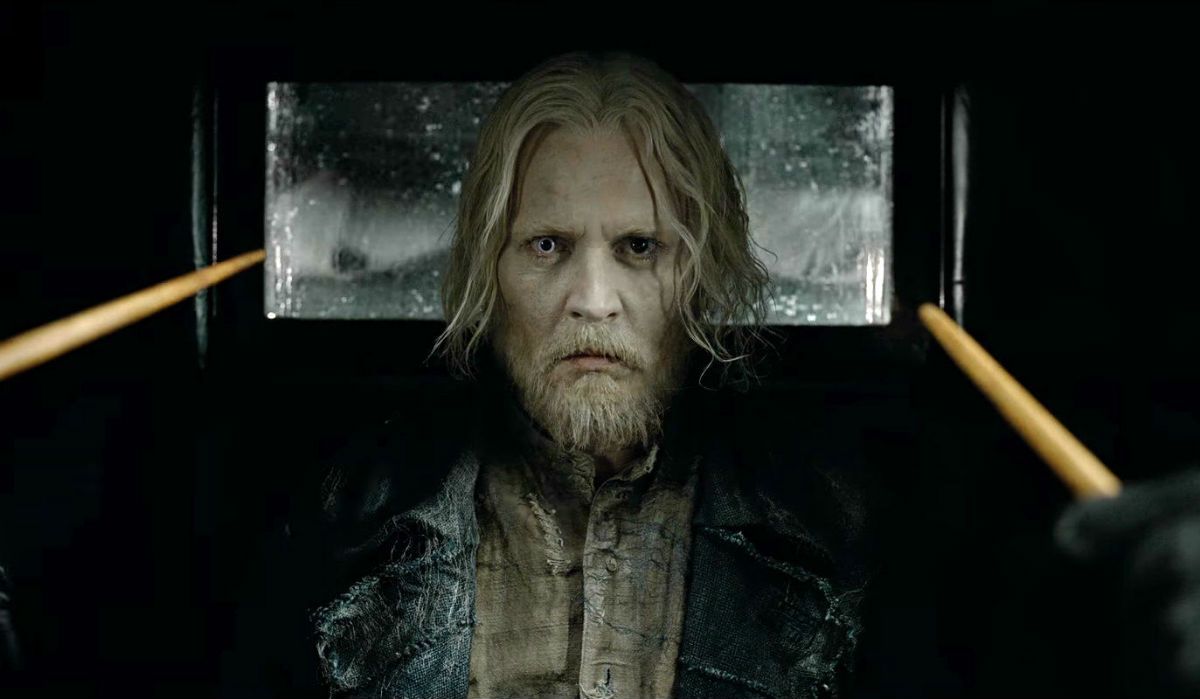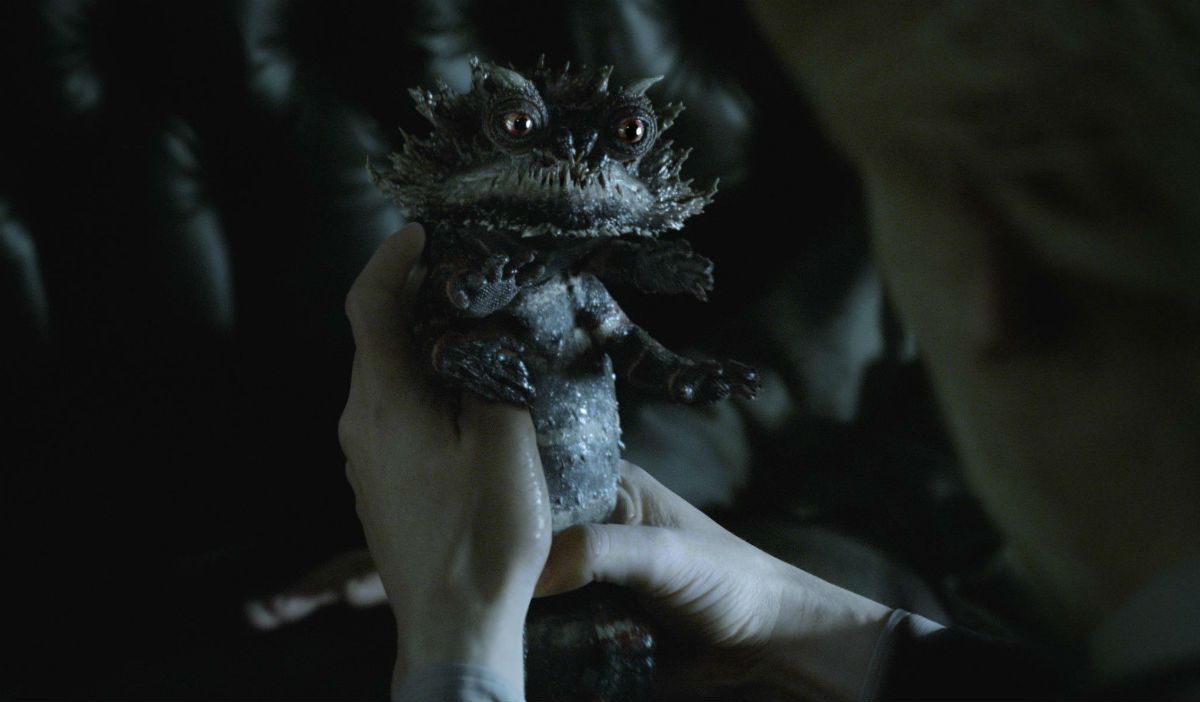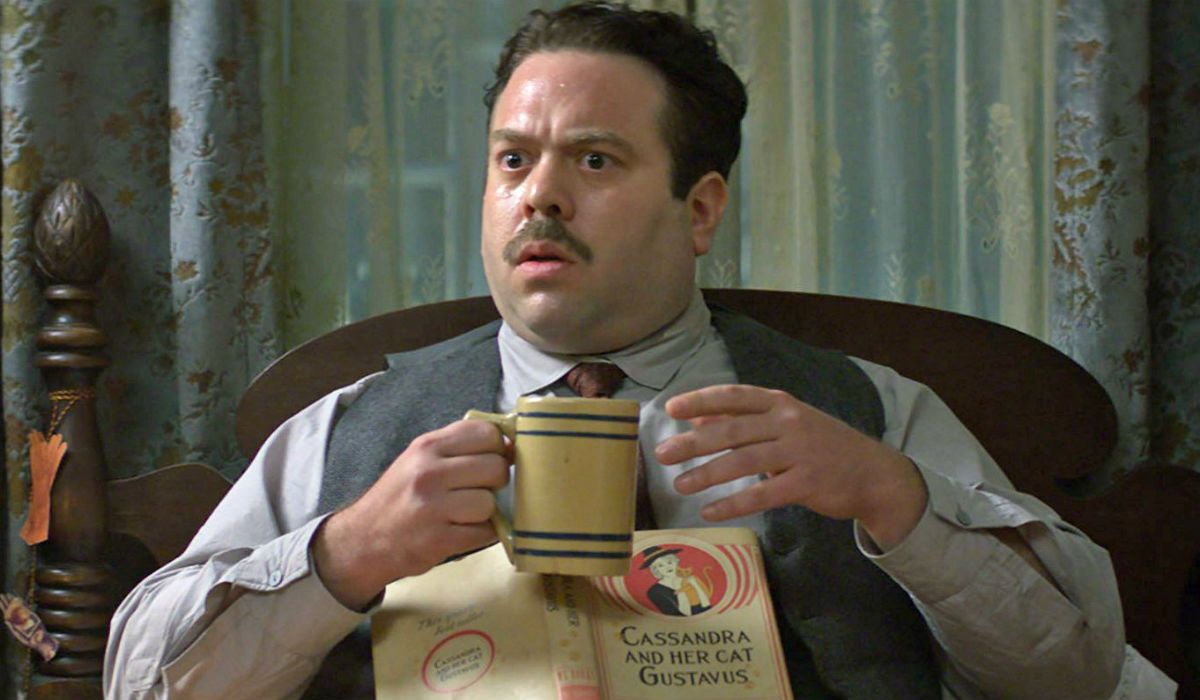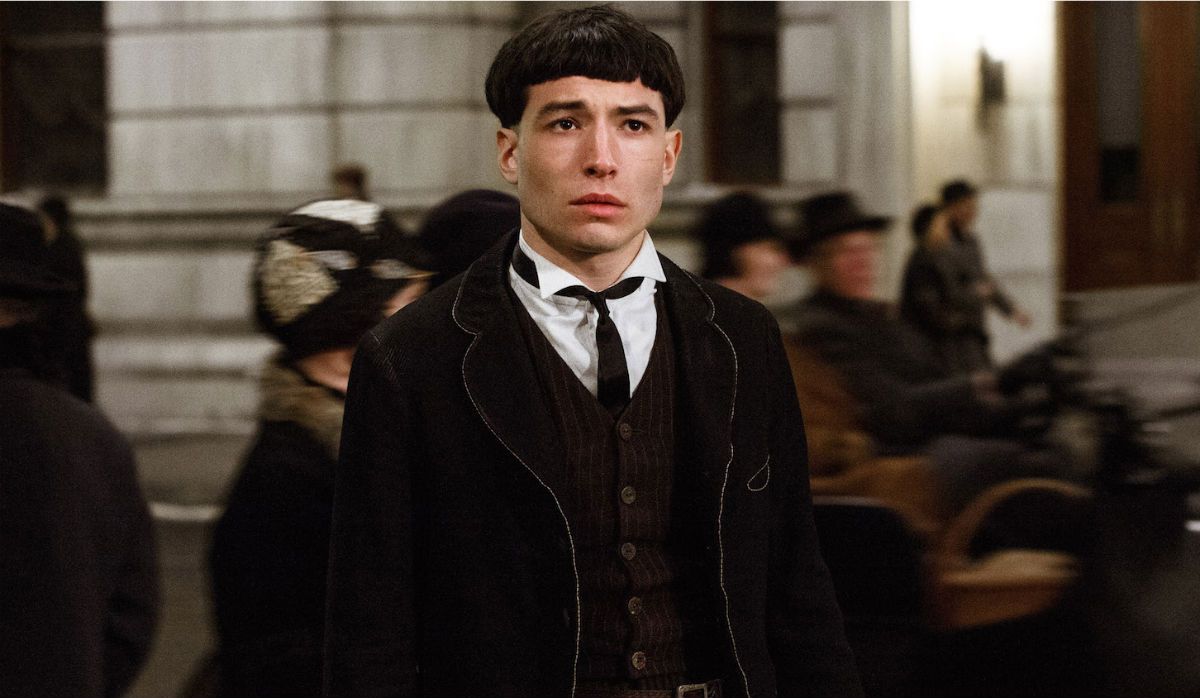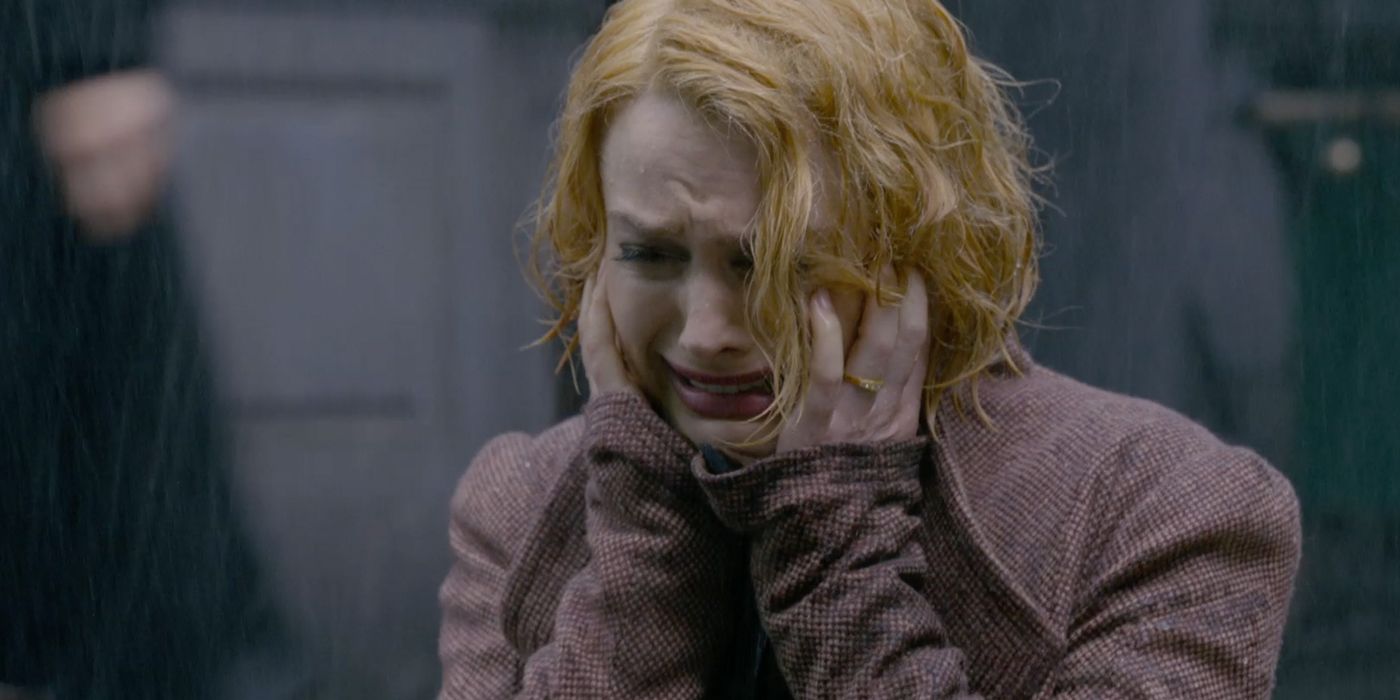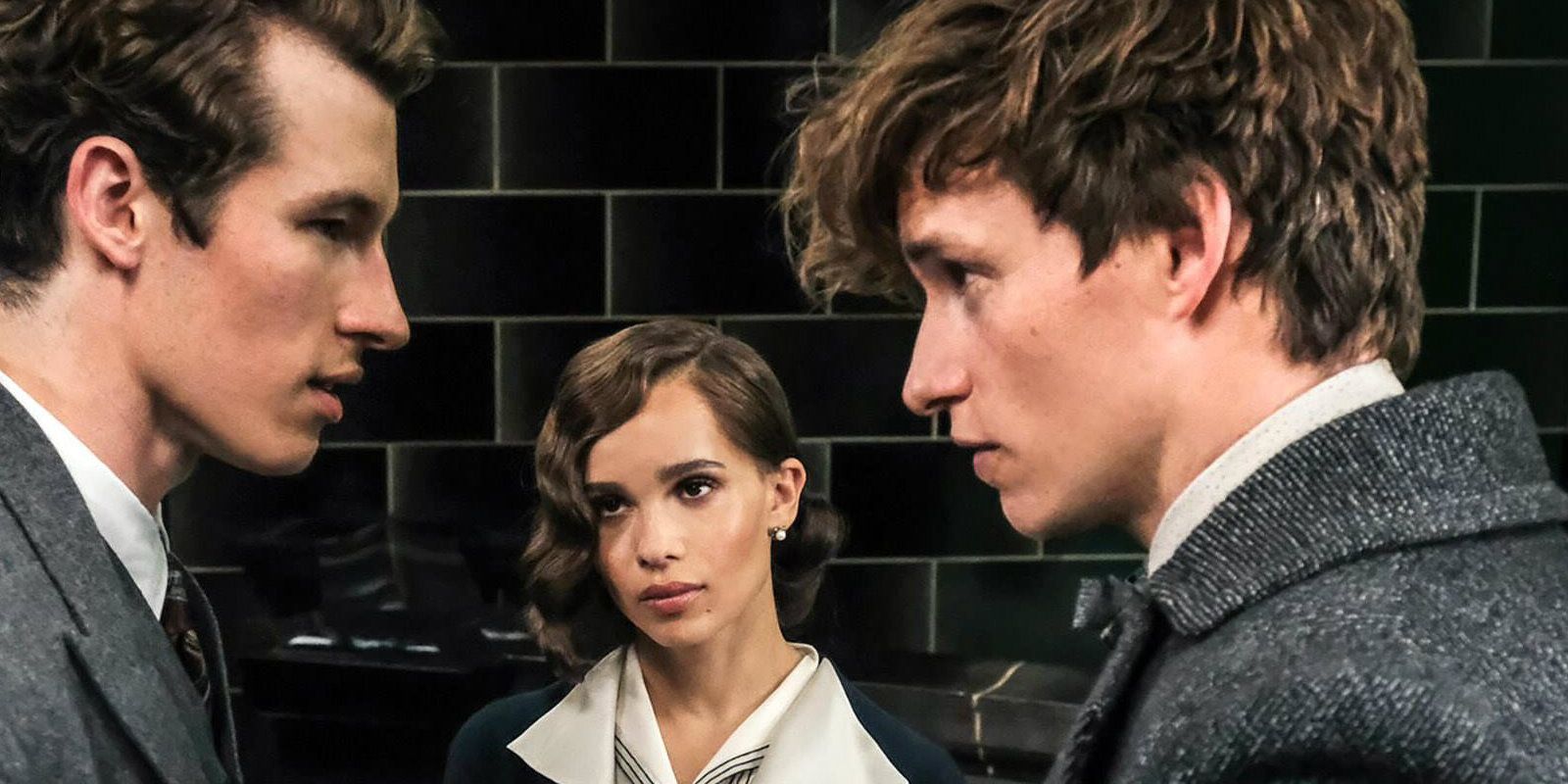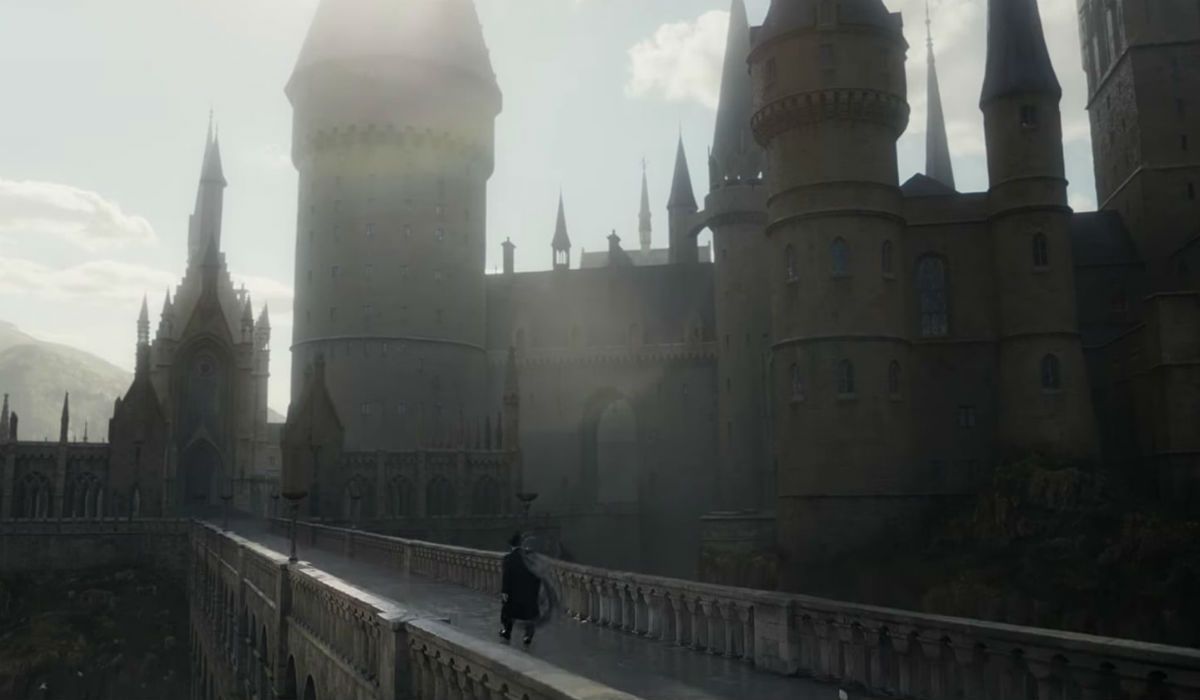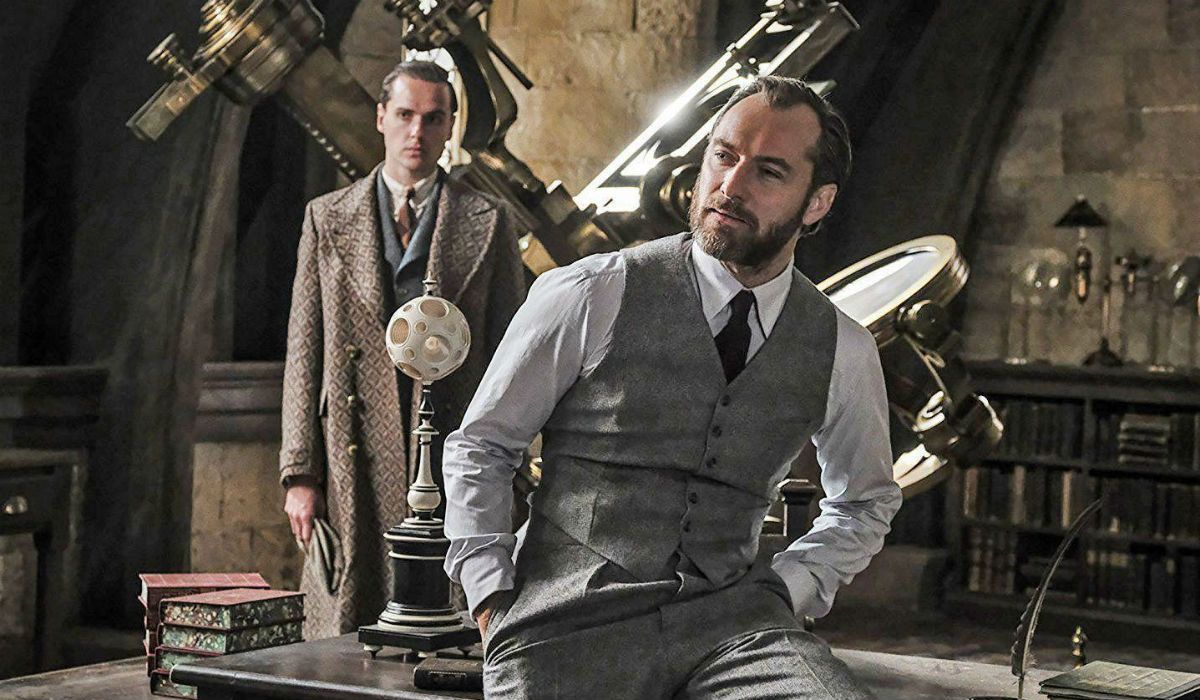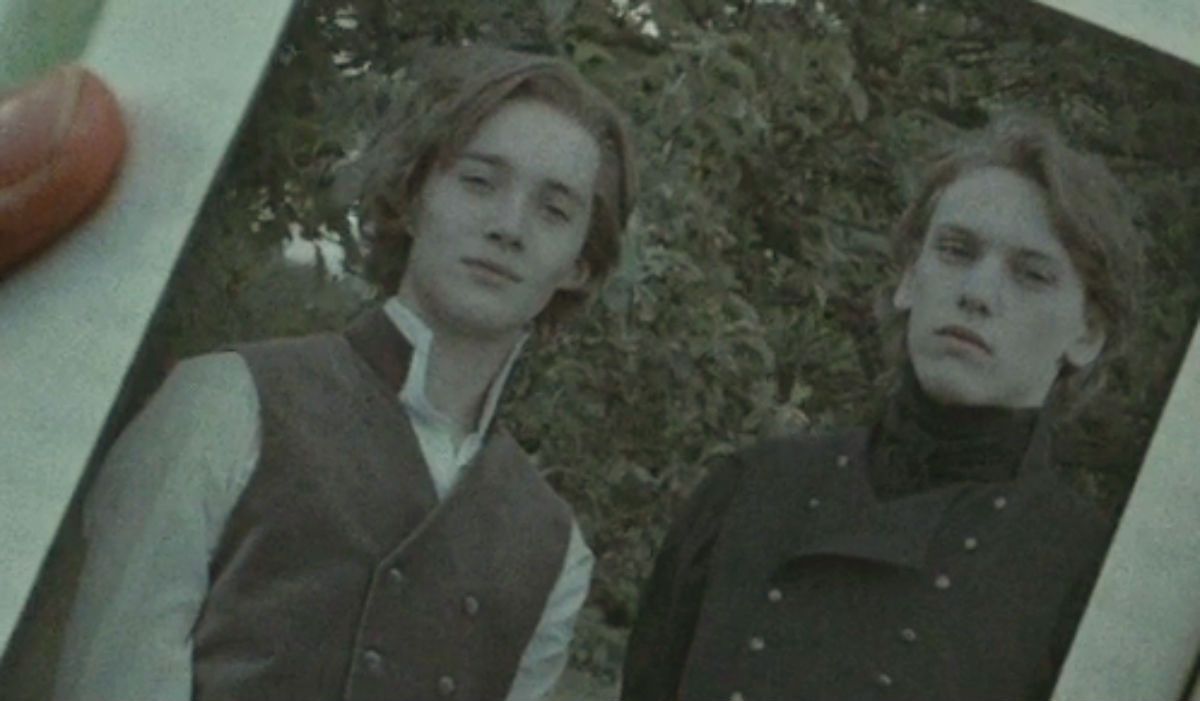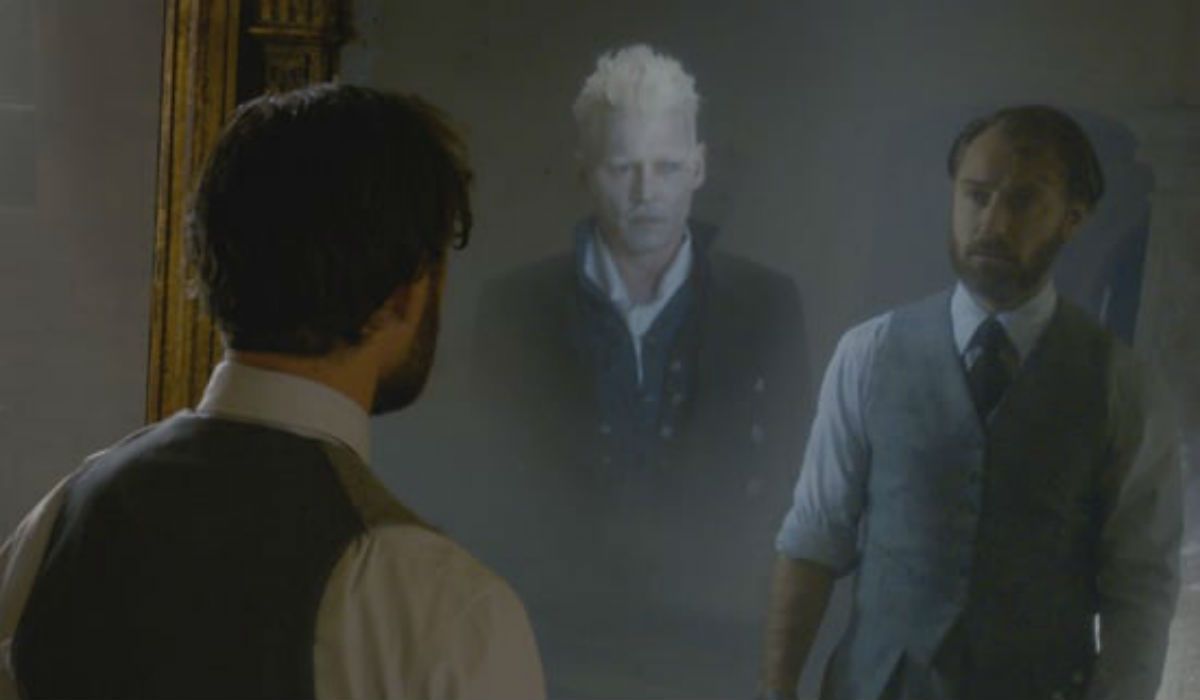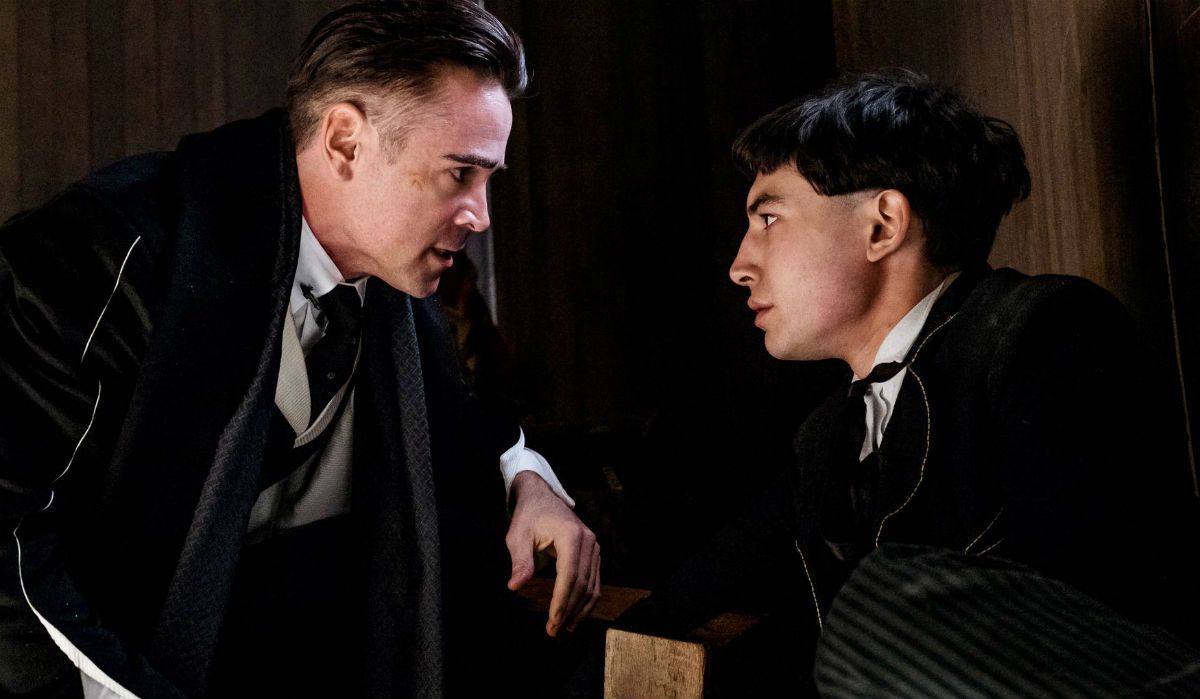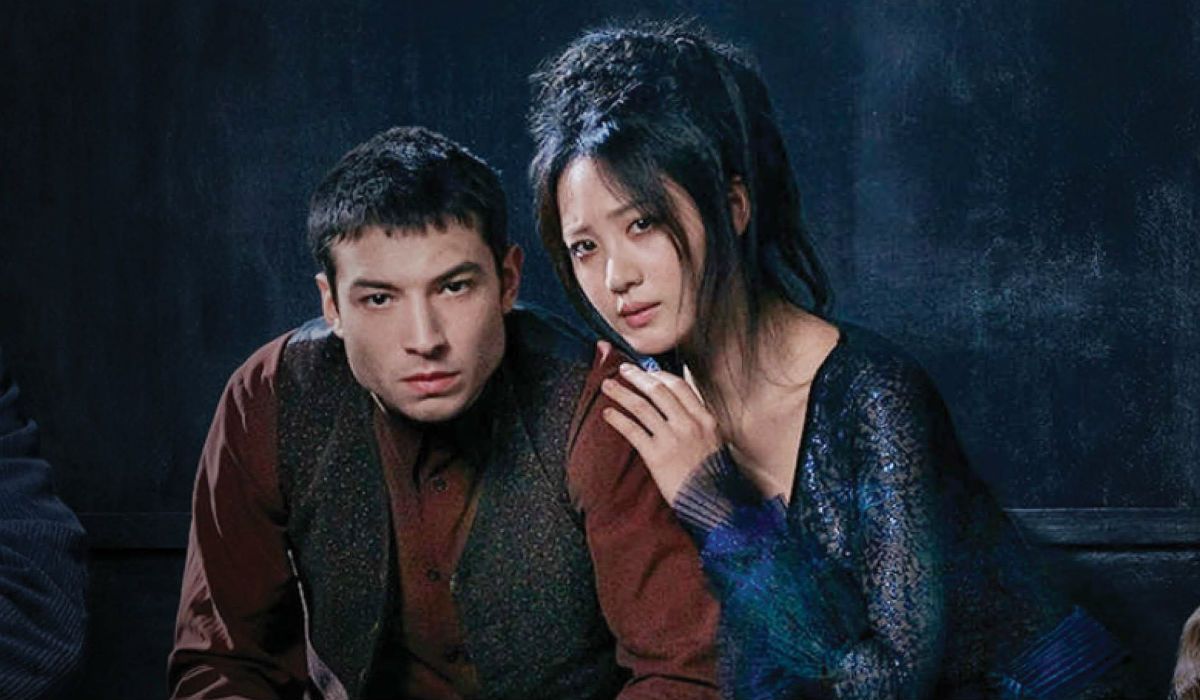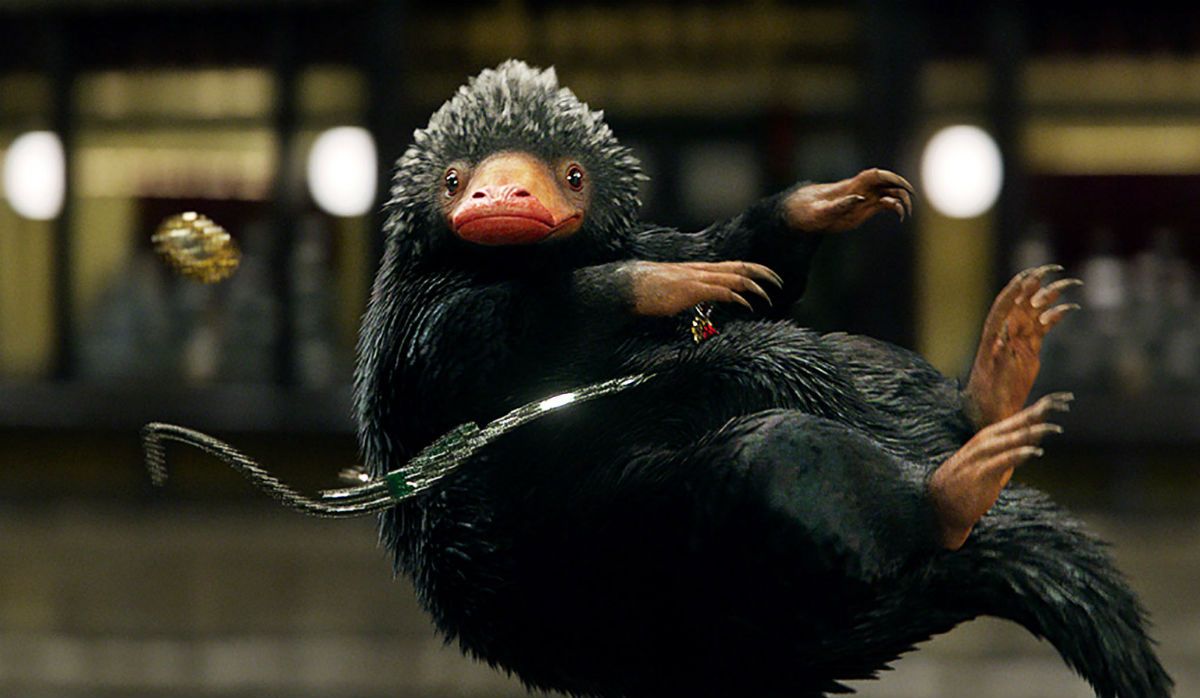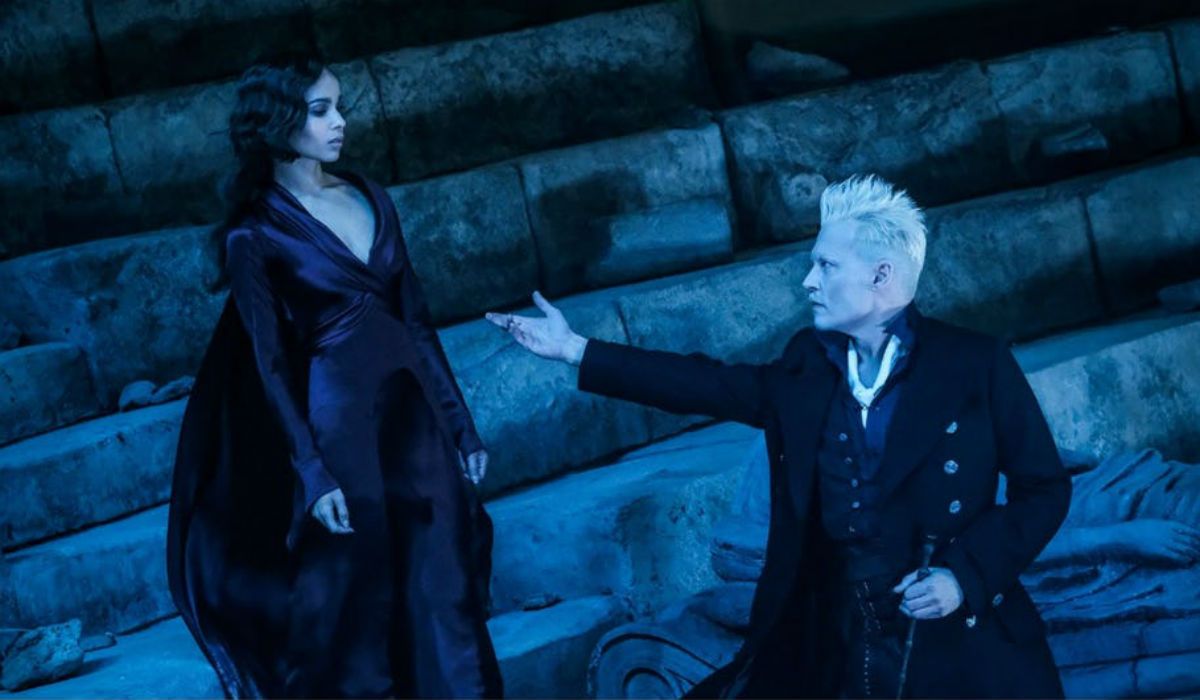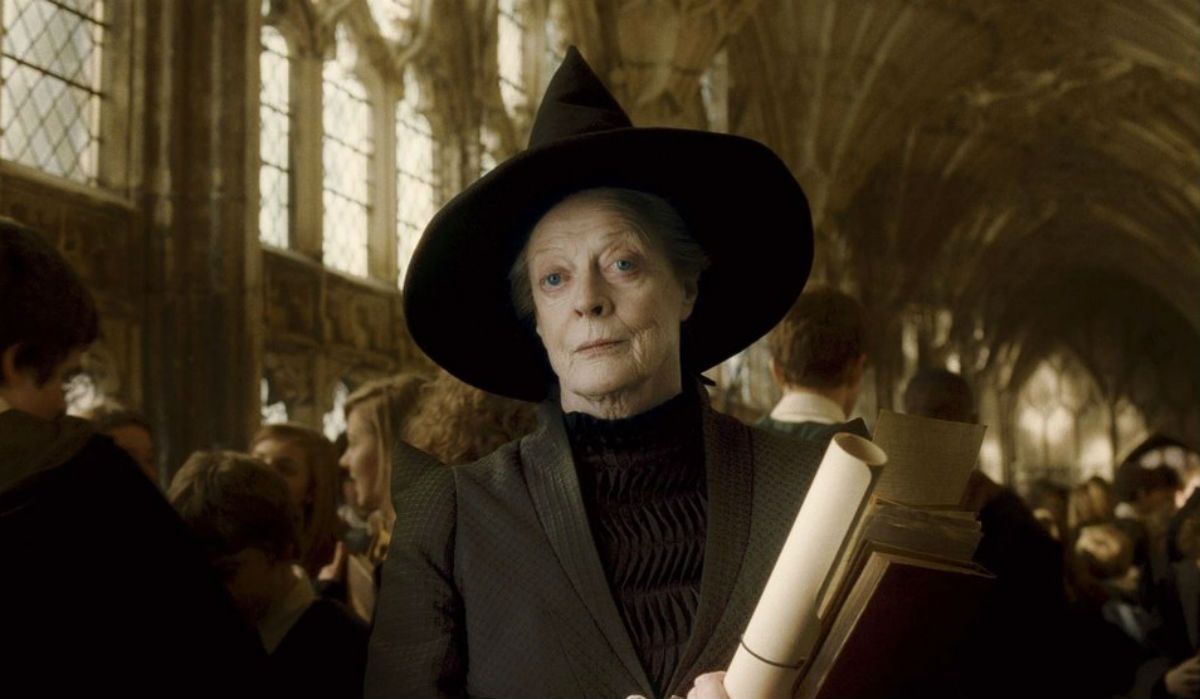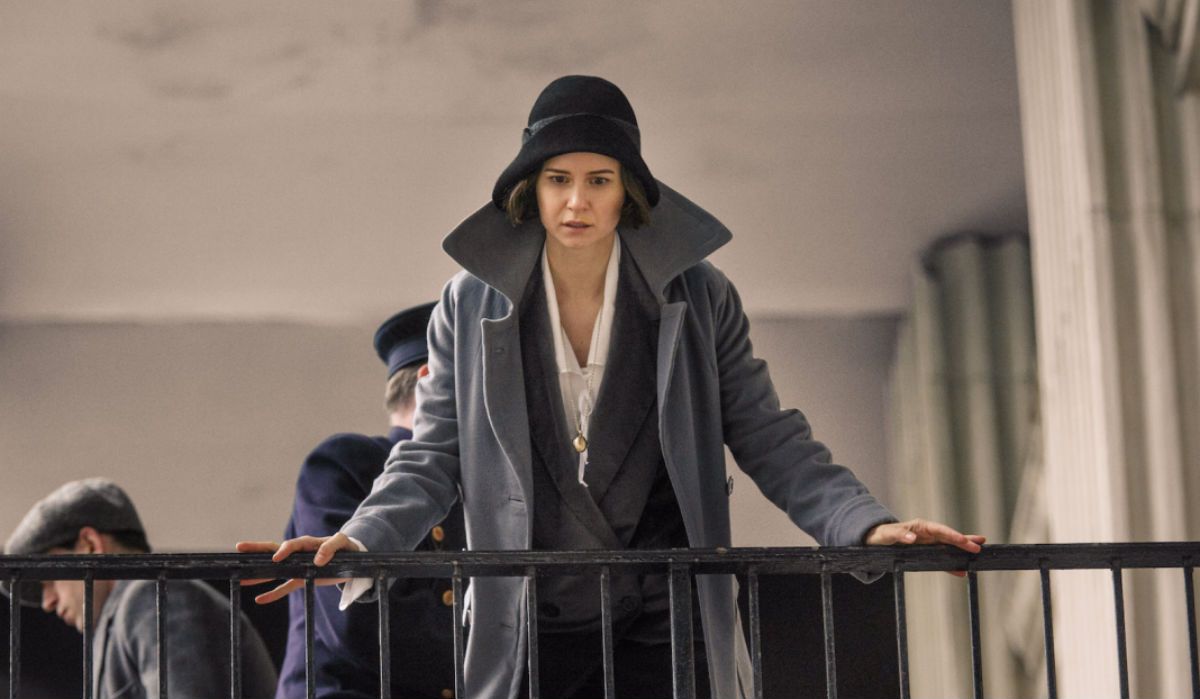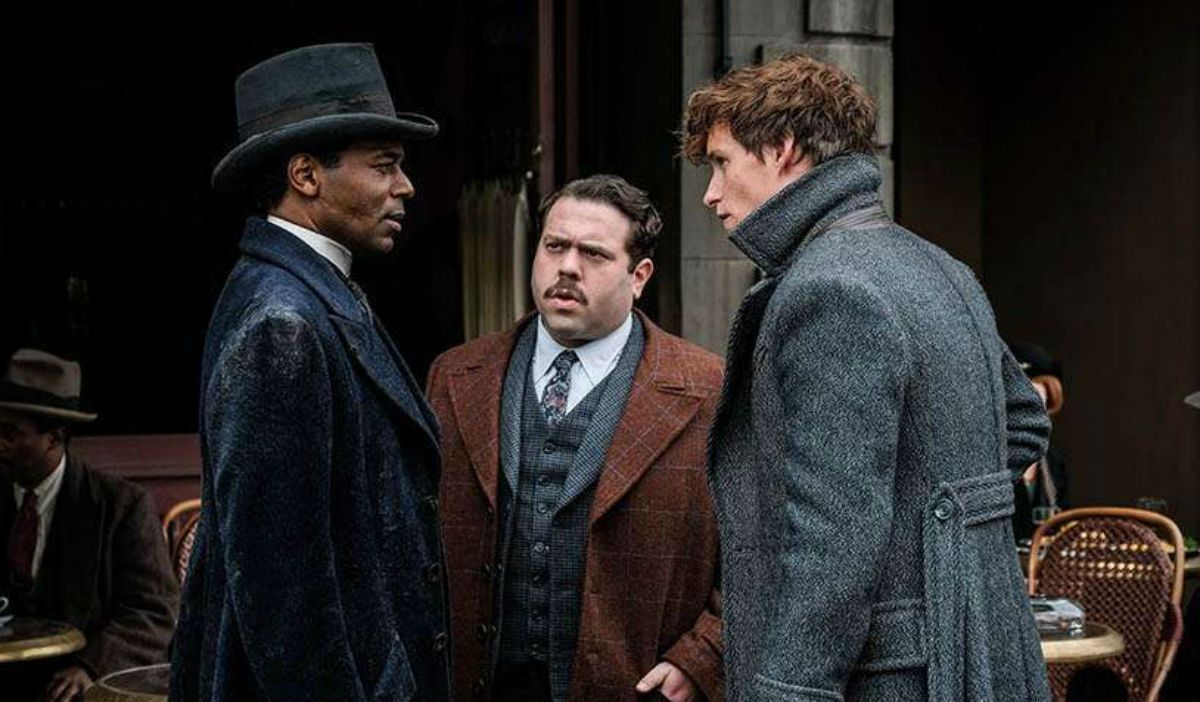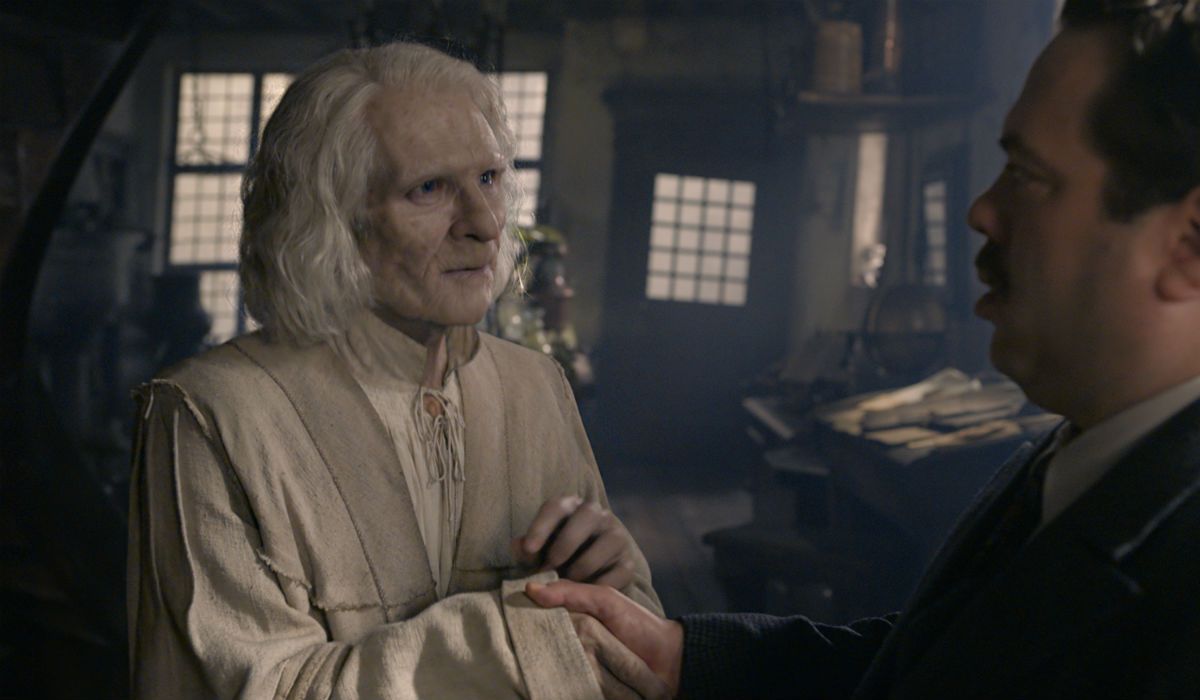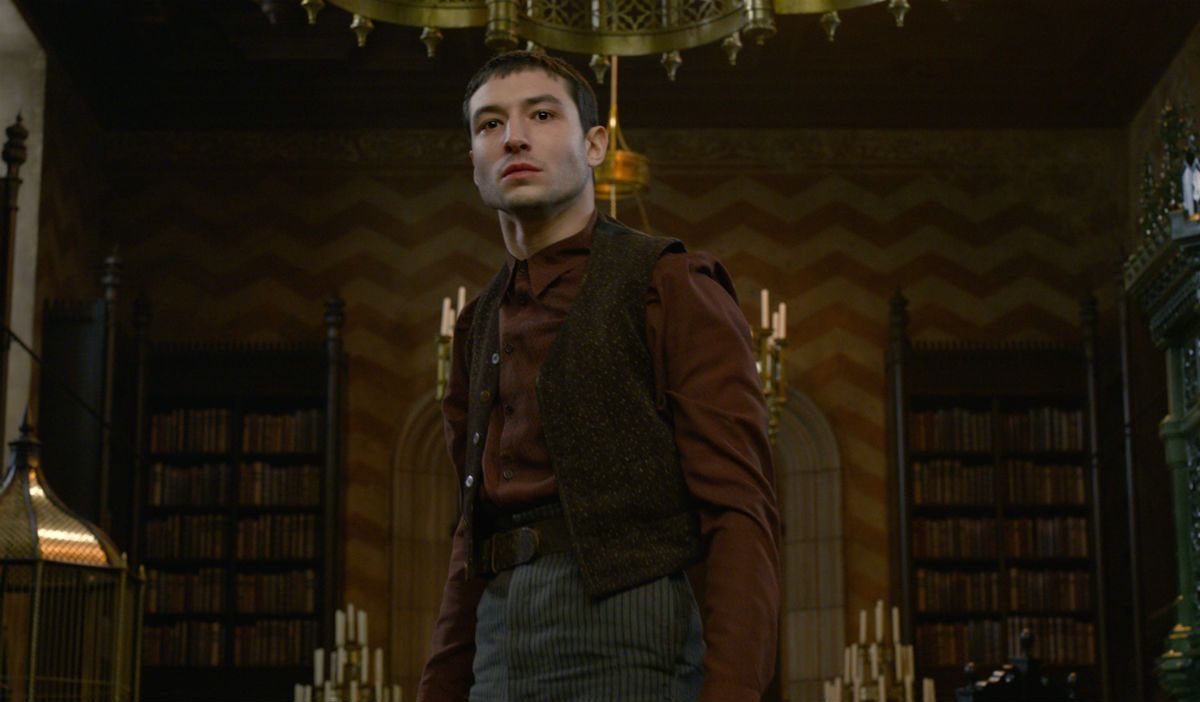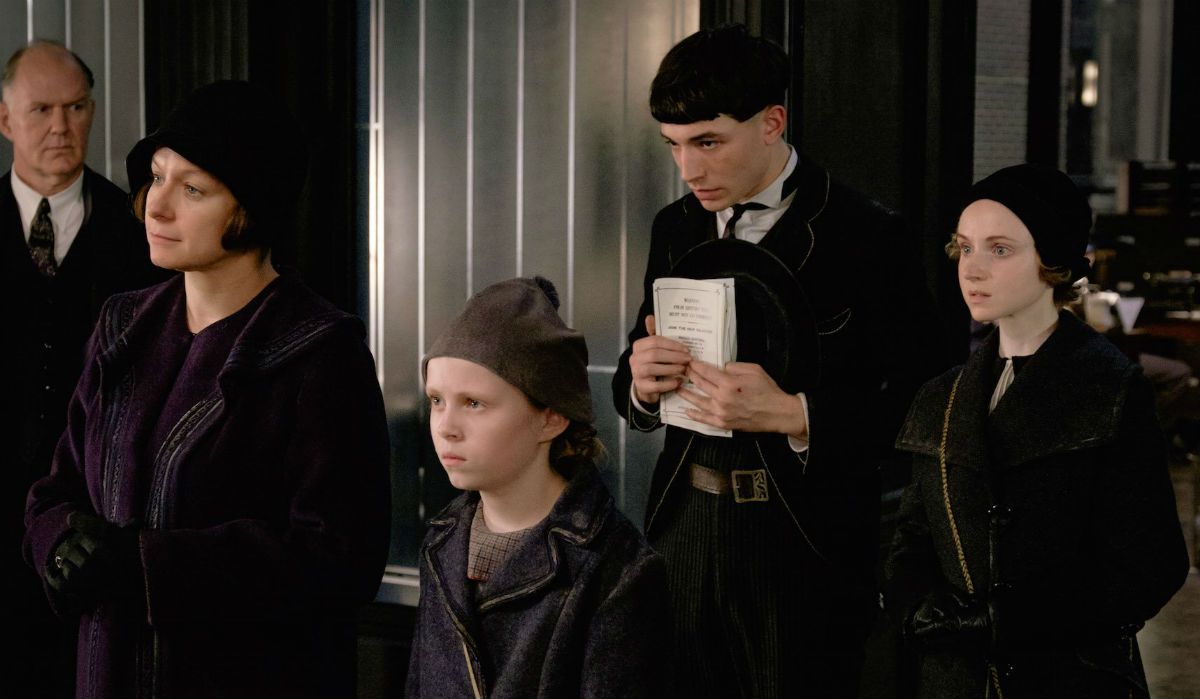Ever since the theatrical release of Harry Potter and the Deathly Hallows - Part II closed out the Boy Who Lived's story in 2010, fans of J.K. Rowling's Wizarding World have been desperate for another trip to Hogwarts or the chance to experience magic one more time. Potter fans rejoiced with Rowling's Pottermore website promised users the chance to try on a virtual Sorting Hat and offered more in-depth looks at some of their favorite characters.
They rushed to bookstores to check out the playscript for Harry Potter and the Cursed Child, even though it was primarily written by Jack Thorne. When Warner Bros. announced plans for a Fantastic Beasts and Where to Find Them series, "Potterheads" worldwide counted down the days until the next installment.
While the first Fantastic Beasts film was filled with the whimsy and wonder viewers grew to expect from the Harry Potter films, the sequel, Fantastic Beasts: The Crimes of Grindelwald, has seemingly managed to suggest that Rowling has finally run out of magic. The film was filled with plot holes and inconsistencies, and while it still featured a few enjoyable moments, creatures and characters, the various issues with the latest Wizarding World entry were too glaring to overlook and ruined the entire viewing experience. If Rowling and Warner Bros. expect the three planned sequels remaining in the franchise to be as successful as the Harry Potter films, they need to address some of these problems.
Here are 20 Things That Make No Sense About Fantastic Beasts: The Crimes Of Grindelwald.
20. THE UNNECESSARY ESCAPE
Everyone loves a good opening action sequence, and Crimes of Grindelwald offers a riveting thestral chase scene in its first few moments that ends in the release of one of history's most dangerous wizards. Unfortunately, it was entirely unnecessary, because Grindelwald was already free.
Gellert Grindelwald was being held in a United States prison, where they continually switched guards to keep him from being able to sway any of them to his villainous side with his legendary silver tongue. He still somehow had time to convince one of the guards, Abernathy, to switch places with him via Polyjuice Potion, allowing him to simply walk out of his cell. It's possible Grindelwald stuck around so he could repay Abernathy's loyalty by helping him escape, but it's more likely that Rowling just wanted the film to start off with a bang.
19. THE CHUPACABRA
The MACUSA did everything they could to try to break Gellert Grindelwald and make his stay in their prison as miserable as possible, so it seemed very weird that they basically gave him a pet. Especially one as creepy and clearly evil as a Chupacabra.
The Chupacabra in Gellert's cell was an animal guard tasked with keeping the Dark wizard in line, but the little monster definitely seemed to side with Grindelwald more than it sided with his employers at the Ministry. Antonio attacked Ministry officials to help his new master with his big escape, even though Grindelwald clearly showed no real affection towards him. As soon as the beast stopped being useful to him, Grindelwald disposed of it for being too needy.
18. JACOB REMEMBERS EVERYTHING
Fans loved Muggle baker Jacob Kowalski in the first Fantastic Beasts film, so it wasn't surprising to see him return in its sequel. It didn't make sense, however, for him to remember everything he experienced in the first installment.
The Ministry obliviated an entire town using memory-wiping rain taken from one of Newt's beasts and distributed by the Thunderbird, so they wouldn't remember the magic they witnessed, and Jacob was among those whose memories were erased. In Crimes of Grindelwald, Jacob tells Newt that the charm "only erases bad memories," and since his memories were mostly good, he still remembers most of the events that transpired. While this may be a functional way of getting Jacob back into the plot, it also makes very little sense. Are we really to believe that Jacob was the only New Yorker, in a city of millions, who had positive memories associated with the magic of the first movie?
17. CREDENCE IS BACK
The Obscurus inside of Credence Barebone nearly exposed the existence of magic to the entire non-magical world in the first Fantastic Beasts film, so the Ministry felt they needed to destroy him. Aurors seemingly disintegrated Credence as soon as he began to settle back into his human form, but the young Obscurial is back and perfectly healthy in Crimes of Grindelwald.
When magical children attempt to represses their magical abilities, this oppression manifests as a powerful and dangerous parasite known as an Obscurus. We've been told in the films that Obscurials rarely live past childhood, but Credence seems to be practically immortal. If he can survive being blown up by several trained Aurors, he has to be the most powerful being in Wizarding World history and it's bizarre that the Harry Potter films and books have never mentioned him.
16. QUEENIE'S PERSONALITY CHANGE
People can do some crazy things in the name of love, but Queenie's personality change in Crimes of Grindelwald is just way too extreme. First, she forces Jacob to take a love potion that takes away his self-control and free will. There are countless problems with that, but the film glosses over those moral issues because Jacob is actually in love with Queenie and the potion merely helped calm his nerves about dating a witch in a time where relationships between magical people and non-magical people were frowned upon.
However, things get worse when Queenie sides with Grindelwald in hopes of helping him take over the world and create a future where she could be free to love Jacob. Jacob repeatedly begged Queenie to stay by his side, but she remained convinced that siding with Grindelwald was the right decision. Ignoring the pleas of her supposed soulmate and sister was way out of character for Queenie and made no sense.
15. LETA'S ENGAGEMENT TO THESEUS
Theseus Scamander seems like a real catch. He's every bit as handsome and kind-hearted as his brother, but Theseus also holds a solid position within the Ministry of Magic and seems to have his life together far better than Newt ever does. No one would blame Leta Lestrange for loving Theseus, but Crimes of Grindelwald doesn't spend any time explaining why she chose to get engaged to him when she clearly had a lot more chemistry and history with Newt.
Newt and Leta first met while studying at Hogwarts School of Witchcraft & Wizardry. Leta was disliked by most of her peers simply due to her last name and rumors surrounding her family, but Newt was always very nice to her. Newt has admitted that he fell for Leta, and while Leta never stated the same, it was apparent that she shared his feelings. So why accept a proposal from his brother? Leta sacrifices her own life before viewers were given any sort of answer.
14. APPARITION ON HOGWARTS' GROUNDS
In the Harry Potter books and films, fans were told that witches and wizards can't simply Apparate onto the grounds of Hogwarts. The school is meant to be one of the safest places in the world, so magic was put in place to keep unwelcomed visitors from simply popping in and causing chaos. Albus Dumbledore was able to bypass this rule because he's one of the most powerful wizards in history, but in Crimes of Grindelwald, everyone seems to be capable of the difficult feat.
Several members of the Ministry of Magic simply wave their wands and appear on Hogwarts' bridge. Even Newt, who was expelled from the school and never completed his education, was able to Apparate to Hogwarts. J.K. Rowling seems to have forgotten several of her own magical rules, but fans have not.
13. DUMBLEDORE'S STYLE
The Fantastic Beasts franchise offers fans the chance to go back in time and see younger versions of a few iconic characters from the Harry Potter series. Crimes of Grindelwald introduces viewers to a middle-aged Albus Dumbledore back when he was a Defense Against the Dark Arts professor at Hogwarts rather than the school's headmaster, but it's hard to really accept Jude Law's portrayal of the beloved wizard.
The Dumbledore we know and love wore embellished, jewel-colored robes with matching hats. Law's version of the character seems to take far fewer fashion risks and opts for simple and smart grey three-piece suits. It's normal for people to change their fashion sense over time, but this change is way too substantial to be believable.
12. THE MINISTRY'S ACCESS TO DUMBLEDORE'S MEMORIES
In the Harry Potter series, fans learned that wizards can pull memories out of their head in the form of a shimmering silver light and allow others to view them through use of a Pensieve. Wizards can also access other people's memories through the use of Legilimency. However, there's no explanation for how the Ministry of Magic was able to access intimate details of Dumbledore's secret history with Gellert Grindelwald.
Albus always kept his past with the world's most powerful Dark wizard a secret, yet when the Ministry entered his classroom to ask him to fight Grindelwald, they revealed that they knew all about his and Gellert's childhood friendship. Albus is far too powerful to have his mind read, and his relationship with Grindelwald began long before the Ministry started having him followed. They shouldn't have known anything about that relationship.
11. THE MIRROR OF ERISED SCENE
The Mirror of Erised allows people to see their deepest desires when they stand in front of it. Dumbledore once lied and told Harry that he sees a pair of woolen socks whenever he looks at his reflection in the Mirror, but Crimes of Grindelwald finally gave us the truth. Sadly, it doesn't make any sense.
Dumbledore apparently sees a flashback of a blood pact he once made with Grindelwald when they were both teenagers to never fight against each other. When he stood in front of the Mirror long enough, he also saw the adult version of the legendary Dark wizard. It's understandable that he secretly still desires the Grindelwald that first won him over, but he undoubtedly regrets ever making that blood pact and there's no way he desires the adult version of Gellert.
10. CREDENCE TRUSTS GRINDELWALD
In the first Fantastic Beasts, Grindelwald made it extremely clear to Credence Barebone that he isn't to be trusted. First, he lied about his identity by claiming to be Percival Graves, a high-ranking Auror and the MACUSA's Director of Magical Security. Then, he tried casting Credence aside the moment the shy teenager seemingly directed him to the Obscurus, even though he had promised to teach Credence magic and help him escape from his abusive mother.
When Credence attacked Grindelwald, viewers assumed he understood that Grindelwald never actually cared about him and only wanted to use the Obscurus to further his own agenda. That's why it was so confusing to see him forget all that in the sequel. Gellert told him he knows the truth about his family history, and Credence suddenly became all too willing to join up with the man who had already betrayed his trust on several occasions.
9. NAGINI DOESN'T STICK WITH CREDENCE
Most of Fantastic Beasts: The Crimes of Grindelwald focused on the search for Credence and the rising threat of one of history's most dangerous Dark wizards, but Rowling did her best to throw a few fantastic beasts into the film to better match the first part of its title. Among the various creatures featured in the sequel was a Maledictus with a familiar name—Nagini.
That's right, it turns out Voldemort's beloved snake and Horcrux was once a beautiful woman who was the carrier of a blood curse that eventually forced her to stay in the form of a snake. Nagini is definitely evil in the Potter series, but she's portrayed as a protagonist in Crimes of Grindelwald and even begs her friend Credence not to join up with the film's Dark wizard. She has no problem working for Voldemort, so it made no sense that she didn't join her only friend in siding with Grindelwald.
8. NO ONE NOTICED THE NIFFLER
When Grindelwald and Dumbledore were teenagers, they made a blood pact which kept them from doing each other harm. Grindelwald kept the vial containing this magic with him at all times, because he knew that Dumbledore was the only wizard powerful enough to stand against him. As long as he had the vial, he didn't have to fear Albus.
That's why it's ridiculous that a Niffler was able to swipe the vial from Grindelwald without him noticing. Nifflers are excellent thieves, but that vial was Grindelwald's most important possession and there's no way he'd allow it to be stolen. Newt explains that Gellert is unable to see the value of things he considers to be beneath him so he didn't pay any attention to the Niffler, but that's not a believable enough excuse. Even if it was, that doesn't explain why Grindelwald's followers didn't notice the Niffler either.
7. LETA'S SACRIFICE MEANT NOTHING
When the flames of Grindelwald's extremely powerful magic threatened the lives of the Scamander brothers, Leta Lestrange called out for Grindelwald to stop his assault. Leta walked down towards the Dark wizard and it momentarily seemed like she was going to give in to her own dark impulses and prove her peers right about the wickedness of the Lestrange family by joining with Grindelwald. Instead, she turned down Grindelwald's offer and tried to attack him.
If Newt and Theseus tried to escape during Leta's distraction, her sacrifice would have made some sort of sense. She would have been trading her life for the lives of the men she loved. However, since the two brothers simply watched Leta and Grindelwald attack each other, her sacrifice ultimately had no real value.
6. MCGONAGALL SHOULD NOT HAVE BEEN THERE
J.K. Rowling tries linking the Fantastic Beasts films with the Harry Potter fans through Easter eggs and cameos of a few beloved Potter characters, but in doing so, she seems to have created a number of plot holes. According to Pottermore, Crimes of Grindelwald takes place in 1927. The film shows Dumbledore to be in his 40s, but since he was 150 when he passed away in Half-Blood Prince, he should be in his 80s in the film.
The film also shows Minerva McGonagall teaching at the school, and while fans were excited to see the beloved professor, it made no sense for her to be there yet since she wasn't even born until 1935. Rowling clearly wanted to make fans happy by including McGonagall in the latest film, but Minerva's appearance simply proved Rowling isn't paying attention to her own established timelines.
5. TINA SHOULD BE MASTER OF THE ELDER WAND
The opening scene of The Crimes of Grindelwald establishes Grindelwald as one of the most dangerous magical beings ever seen in one of J.K. Rowling's Wizarding World films. His magic is far beyond that of the Ministry employees tasked with transporting him to a London prison, and he dispatches of several Aurors with ease.
At the end of the film, Grindelwald conjures up a fire that takes the lives of even more Ministry employees, and that seems to be something not even Voldemort would have been capable of. It was cool to see an antagonist that powerful, but Gellert's wand shouldn't have allowed him to produce such strong magic. At the end of the first Fantastic Beasts, Tina disarmed Gellert Grindelwald. That should have made her the master of the Elder Wand and kept the Dark wizard from being able to reach his full potential with the Hallow.
4. THE ENTIRE YUSUF REVENGE PLOT
There's no denying that the latest Fantastic Beasts was far too cluttered. The film introduced more than a dozen new characters, and expected viewers to care about all of them. Among these additions was Yusuf, a man who took an Unbreakable Vow to track down and eliminate Credence under the belief that he was Corvus Lestrange V, the son of the man who had forced his mother into marriage.
The "Credence is a Lestrange" plotline turned out to be a giant red herring, so Yusuf was an entirely pointless character and his revenge plot served no purpose in the film. It turned out that Leta had actually switched her half-brother with another baby, so the real Corvus Lestrange drowned when the ship they were sailing on sank.
3. NICOLAS FLAMEL'S CRYSTAL BALL
In Harry Potter and the Prisoner of Azkaban, Hermione Granger was given a Time-Turner so she could go back in time and take multiple Hogwarts courses at once. Fans couldn't get over the fact that the Ministry of Magic allowed Time-Turners to be used for something so silly when they could have used them to change history in a more meaningful way, and Crimes of Grindelwald provided viewers with yet another reason to question the wizarding logic.
Nicolas Flamel owns a crystal ball in the film which lets him look into the future. He used it to foresee the fate of those who interrupted Grindelwald's meeting, but for whatever reason, he didn't show up until it was already too late. If crystal balls that accurate exist, why isn't the Ministry using them and why didn't Flamel Apparate to the Lestrange tomb in time to help Newt and the others?
2. THAT AURELIUS DUMBLEDORE TWIST
J.K. Rowling loves surprising fans with twists that make them rethink everything they thought they knew about certain characters. People still aren't over the reveal that Snape was actually in love with Lily Potter, and years from now, fans will probably still be talking about the twist that Credence Barebone is actually Albus Dumbledore's brother.
In the final moments of Crimes of Grindelwald, the primary antagonist reveals to Credence that his true name is Aurelius Dumbledore. Deathly Hallows gave readers an inside look at Albus Dumbledore's complicated upbringing, but it never mentioned the fact that he had a third brother named Aurelius. Considering the fact that Aurelius is an Obscurial with the power to destroy an entire mountain with the first flick of his wand, this seems like a weird thing to leave out of Albus' biography.
1. AURELIUS' CONFUSING PARENTAGE
It's definitely possible that Grindelwald made the whole Aurelius Dumbledore thing up to turn Credence into his weapon against Albus. If he was telling the truth, however, this twist makes no sense because neither of Albus' parents should have been able to have a child Credence's age.
Albus' father Percival was sent to Azkaban prison the year before Albus went to Hogwarts for attacking Muggles who were bullying his daughter Ariana. So unless Credence and Albus are only ten years apart in age (which isn't likely since Dumbledore should be in his 80s in Crimes of Grindelwald), or unless Percival sired another son in Azkaban, he can't be Credence's father. Kendra, Albus' mother, passed during an uncontrolled fit by Ariana in the summer of 1899. Fantastic Beasts claimed Credence was born in 1901, so Kendra can't be Credence's mother. Someone should tell Rowling to keep track of her timelines.
---
Are there any other things about Fantastic Beasts: The Crimes Of Grindelwald that make no sense? Let us know in the comments!

